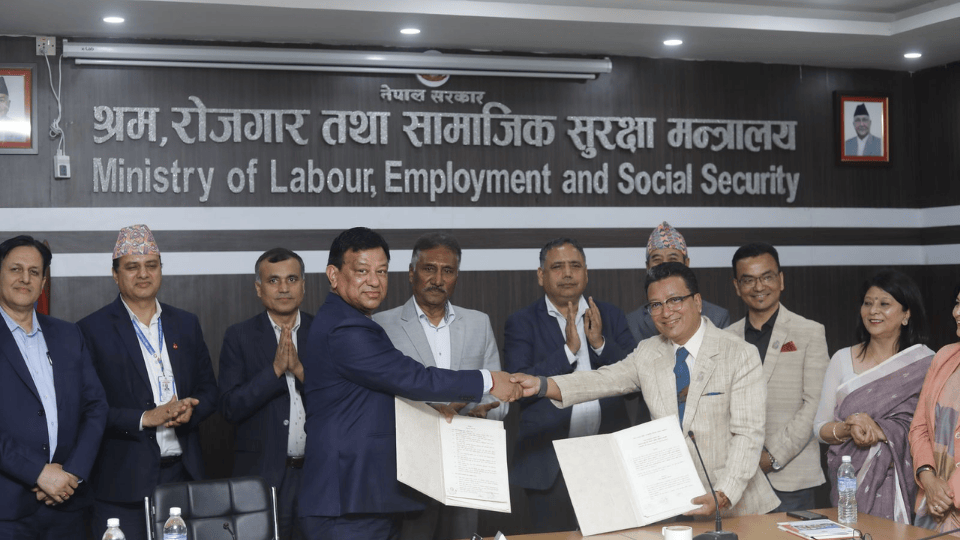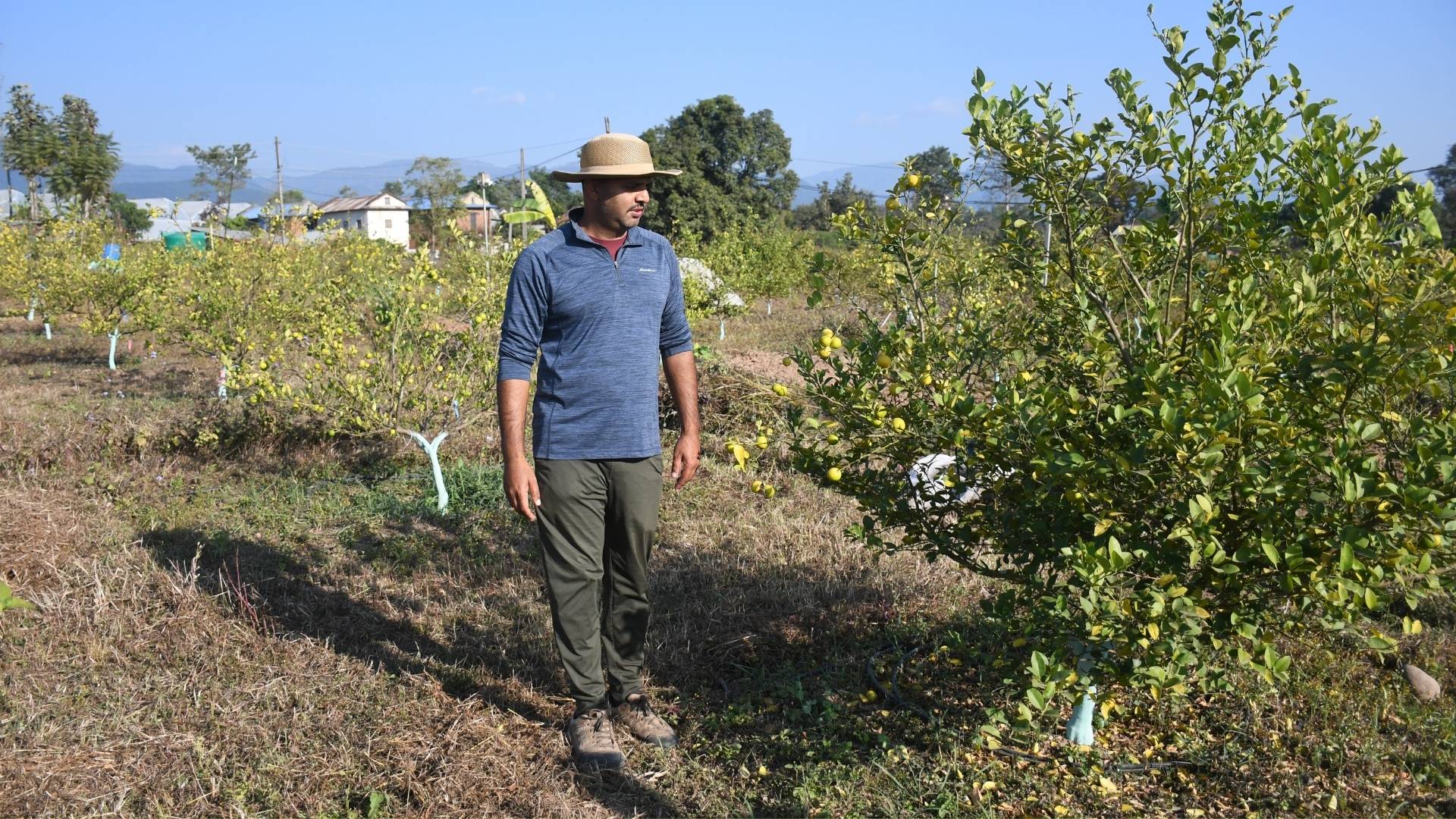With the aim of producing skilled human resources necessary for Nepal’s handicraft sector, a significant agreement has been signed between the National Vocational Training Institute, under the Ministry of Labor and Employment of the Government of Nepal, and the Federation of Handicraft Associations of Nepal (FHAN).
The agreement was signed on Chaitra 27 (mid-April) in a special ceremony by Mr. Ramesh Kumar Bakhati, Executive Director of the Institute, and Mr. Rabindra Shakya, President of FHAN. The event was also graced by the presence of the Honorable Minister for Labor and Employment, Mr. Sharad Singh Bhandari.
Addressing the program, Minister Bhandari expressed his belief that the development of the handicraft sector would significantly contribute to the government’s initiative of the ‘Decade for the Promotion of Domestic Employment.’ The agreement aligns with the government’s plan to promote domestic employment over the next 10 years.
In the context of utilizing Nepal’s labor force appropriately, protecting and promoting employment-generating sectors, and making effective use of the skills, knowledge, and capital gained from foreign employment to contribute to the broader development of the country, the Ministry of Labor, Employment, and Social Security successfully had organized the National Labor and Employment Conference, 2081 on Falgun 26 and 27, under the slogan “Expansion of Production and Productivity: Sustainable Foundation of Domestic Employment.” In the conference, the Honorable Prime Minister KP Sharma Oli had shed light on various important issues, including Nepal’s employment status and future roadmap, increasing production and productivity in agriculture, entrepreneurship, development and expansion of the industrial sector, challenges faced by employers, tourism promotion, and the need for skill development in line with labor market demands. On this occasion, he had also announced the launch of the Transformative Decade for the Promotion of Domestic Employment (Fiscal Years 2082/83–2091/92).
Nepal’s traditional handicrafts, which are an integral part of its heritage, are believed to hold immense commercial potential. However, due to the lack of skilled manpower, the handicraft sector has not been able to fully realize this potential. Addressing this challenge, the agreement aims to preserve traditional skills while integrating them with modern entrepreneurship.
According to the agreement, various types of training programs will be conducted, keeping in mind the demands of the labor market. These will primarily include employment-oriented skill training, entrepreneurship training, and training for trainers. After the training, participants will be encouraged to pursue self-employment, and efforts will also be made to connect them with employment opportunities through coordination with employers associated with the Federation.
The agreement was prepared under section 7(e) of the National Vocational Training Institute Formation Order, 2080, which ensures the right to conduct training programs in collaboration with industrial institutions, organizations, and private training providers as necessary.
By preserving traditional skills while emphasizing entrepreneurship and employment creation, this initiative is expected to significantly contribute to the utilization of domestic manpower and add value to Nepali products.
















